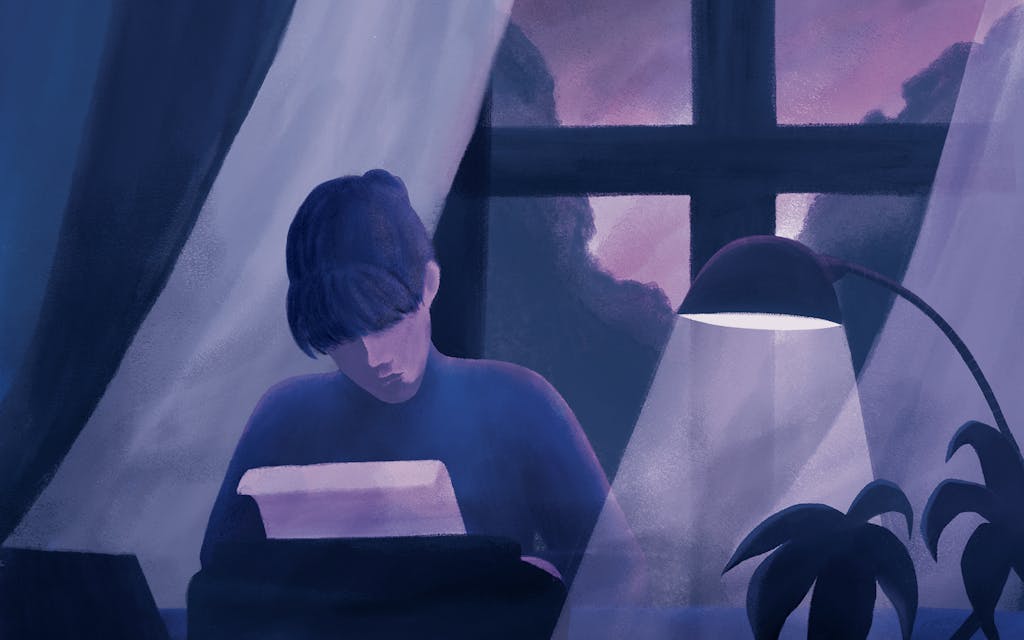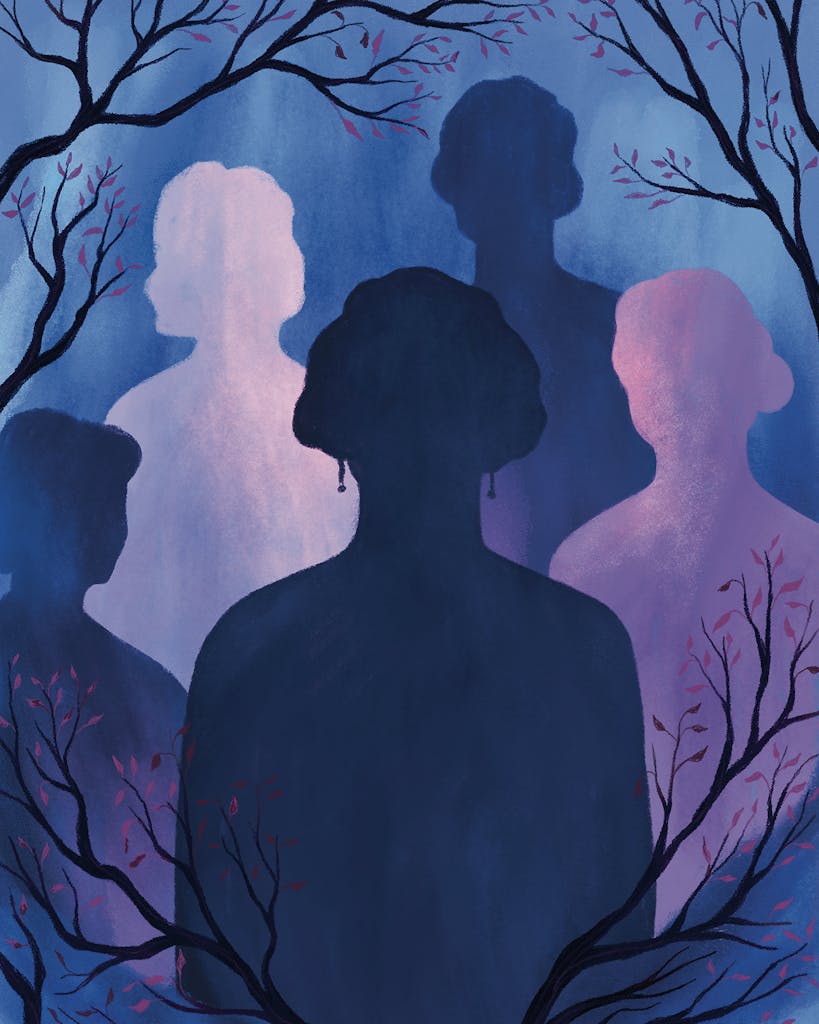Texas’s explosive growth has created an unprecedented wave of first-rate literature. A diverse cohort of authors who might have fled the state in previous decades are sticking around, and others are moving here, drawn by our universities’ prestigious writing programs. Barely a week goes by without a noteworthy novel or collection of short stories showing up and demanding our attention. Here are ten signs that Texas readers have never had it better.
Reason No. 1
The Author of Billy Lynn’s Long Halftime Walk Says So
A country’s literature—not “literature” in the starched sense of far-out academic theories or fancy turns of phrase, but writing that gets down into the stuff of life as it’s actually lived, the muck and blood and sex and sweat and struggle of it—is, to put it bluntly, everything. Everything as it relates to this project we call civilization, and the ethics, morals, and laws that at certain times and in certain places make us more civilized than savage; those ethics, morals, and laws that might be summed up in the seemingly simple phrase, Love your neighbor as yourself. Or: Do to others as you would have them do to you. To love and do in this manner require us to step outside ourselves and enter into the experience of another person, to recognize that this person’s humanity is just as vital and rich and precious as our own. One might say that all morality, all civilization, is based on this profound act of imagination, this necessary extension of self. And it’s the failure of this imagination that enables the unbounded human genius for cruelty. Read More.

Reason No. 2
Women Crime Fiction Writers Have Finally Escaped the Shadow of Gone Girl
Texas women have always written crime fiction, but you’d be forgiven for not knowing many of our names. Female contributors made up an anemic 30 percent of the 2007 anthology Lone Star Sleuths and haven’t fared much better in recent listicles. In one typical example from 2017, Dallas crime author Harry Hunsicker introduced Houston’s Attica Locke, the sole woman on his list of “Top Ten Texas Crime Novels,” by asking us to “imagine Dennis Lehane transforming himself into an African American woman.” It’s a bizarre image that speaks volumes about the strain some people seem to feel envisioning a crime writer from this state who’s not a white man. Despite ferocious talents such as Sandra Brown, Meg Gardiner, Kathleen Kent, and Locke, many readers still regard Texas crime fiction as primarily a genre by and about men, tinged with nostalgia for the tough cowboys and small-town sheriffs of a frontier past characterized by what J. Frank Dobie called “the lack—temporary—of women.” Read More.
Reason No. 3
Houston Is the Perfect Setting for a Novel About Social Isolation and Inequality
The inspiration for Chris Cander’s novel A Gracious Neighbor (Amazon Publishing / Little A) came from a short story her daughter was assigned to read in high school. “A Jury of Her Peers,” by Susan Glaspell, was first published in 1917 and has become a feminist cult classic. But to better explore the themes that interested her, Cander changed its rural setting. Read More.
Reason No. 4
Sergio Troncoso Is Making Sure That Texas Literature Represents All of Texas
“I’m exhausted,” Sergio Troncoso says. Considering that over the past two years he’s released two books, dealt with a life-threatening health crisis, and served as president of the Texas Institute of Letters, that’s understandable. But he’s never been one to take time off. His first book, the 1999 collection The Last Tortilla and Other Stories, won the Premio Aztlán Literary Prize, and since then he’s published seven more books, taught fiction and nonfiction at the Yale Writers’ Workshop, served as a judge for the PEN/Faulkner Award, and transformed the TIL. So it’s no surprise when Troncoso, just minutes after saying he needs a break, roars back to life. “I am hungrier than ever,” he says. “I feel like I haven’t done anything. Honestly, that’s not a put-on. I’m hungry.” Read More.

Reason No. 5
East Texas Remains Irresistible for Writers With a Gothic Bent
“Playing the Ghost,” a new short story from Bret Anthony Johnston.
I quit Texas
after Lorelei troubled my waters. Ten, fifteen years ago. I drove to New Orleans, then Biloxi and Kansas City, wherever there was nine-ball action. If I found a motor court laid out like a horseshoe, I’d rent a room for a week. A month if the pool hall had Gold Crown tables, longer yet if I met a friendly waitress. I’d been hustling in Knoxville for a year before Jesse Vodinh kicked in my door at the Sunset Motel and accused me of throwing games. Jesse was a stake horse with a shaved head and an affinity for butterfly knives. I was alone again, on the plum-colored carpet, when my father told me that he’d seen Lorelei haunting our bayou. I hadn’t heard his voice in a decade, maybe more. My ears were humming. Jesse had rung my bell before flicking open his knife. Read More.
Reason No. 6
Can’t Find a Texas Novel to Read This Summer? Here’s a Guide for You.
If, as the saying goes, Texas is a country unto itself, it’s only fitting that we have what amounts to a national literature—a vast catalog of books that includes every genre and covers virtually every possible subject contained within our borders. There are historical novels, dystopian novels, mysteries, thrillers, revisionist westerns, non-revisionist westerns, domestic dramas, bildungsromans, romans à clef, tales of roamin’, tales of settlin’, and tales of fightin’, written by newcomers, old-timers, city folk, country folk, and suburban folk alike. This excess of riches has turned especially excessive during the state’s recent boom years—so much so that figuring out where to start can seem daunting. Fortunately, we’ve got a guide for you to find your perfect summer read. Read More.
Reason No. 7
Gabino Iglesias Has Written a Very Creepy Horror Novel That’s All About Right Now
When Gabino Iglesias was laid off from his job as an Austin schoolteacher two years ago, he was already writing his third novel, The Devil Takes You Home (Little, Brown and Company / Mulholland Books, August 2). But that experience of precarity—all too common in our loser-take-none economy—only intensified the stakes of this very effective horror story. Read More.

Reason No. 8
Texas May Have Finally Found Its William Faulkner—and She’s a Black Woman From Dallas
The first in her family to graduate from college, LaToya Watkins applied to law school because it seemed like the next big step in making her kinfolk proud. In the period between getting accepted to Texas Southern University’s law school and enrolling, Watkins was nudged by a cousin to write a book about their family. The suggestion wasn’t completely out of the blue. As a girl growing up in Dallas and Lubbock, Watkins had always journaled. But aside from a vignette that she’d started while tuning out a lecture on Shakespeare in high school, she’d never written so much as a short story. She’d read plenty of novels, though, by the likes of Jackie Collins, John Grisham, Stephen King, and Danielle Steel. And now she had an idea for a novel of her own. Read More.

Reason No. 9
Novelists Keep Finding New Things to Say About Galveston
Writing fiction about your hometown can be tricky. The same intimacy that animates insight can also paralyze the imagination. That doesn’t seem to be the case, though, when the city is Galveston, a place that has long fascinated and inspired Texans, whether or not they were born there. This year, we’ve seen the publication of no fewer than three notable Galveston-set novels: Sarah Bird’s Last Dance on the Starlight Pier, Matt Bondurant’s Oleander City, and Kimberly Garza’s debut, The Last Karankawas (Henry Holt and Co., August 9). Read More.
Reason No. 10
Fernando A. Flores Is Bringing to Life the Punk-rock Magicalism of the Texas Borderlands
Fernando A. Flores was born in Reynosa, Tamaulipas, crossed into United States as a young child, and was raised in a trailer in the Rio Grande Valley town of Alton. Though he’s very much a product of the region, his work has acted like an incursion on the area’s abiding literary conventions: his fantastical stories question the widespread assumptions that the border is anything more than an arbitrary delineation and that the Mexican Americans of the Rio Grande Valley are a backward people of scant literary sophistication. Read More.







